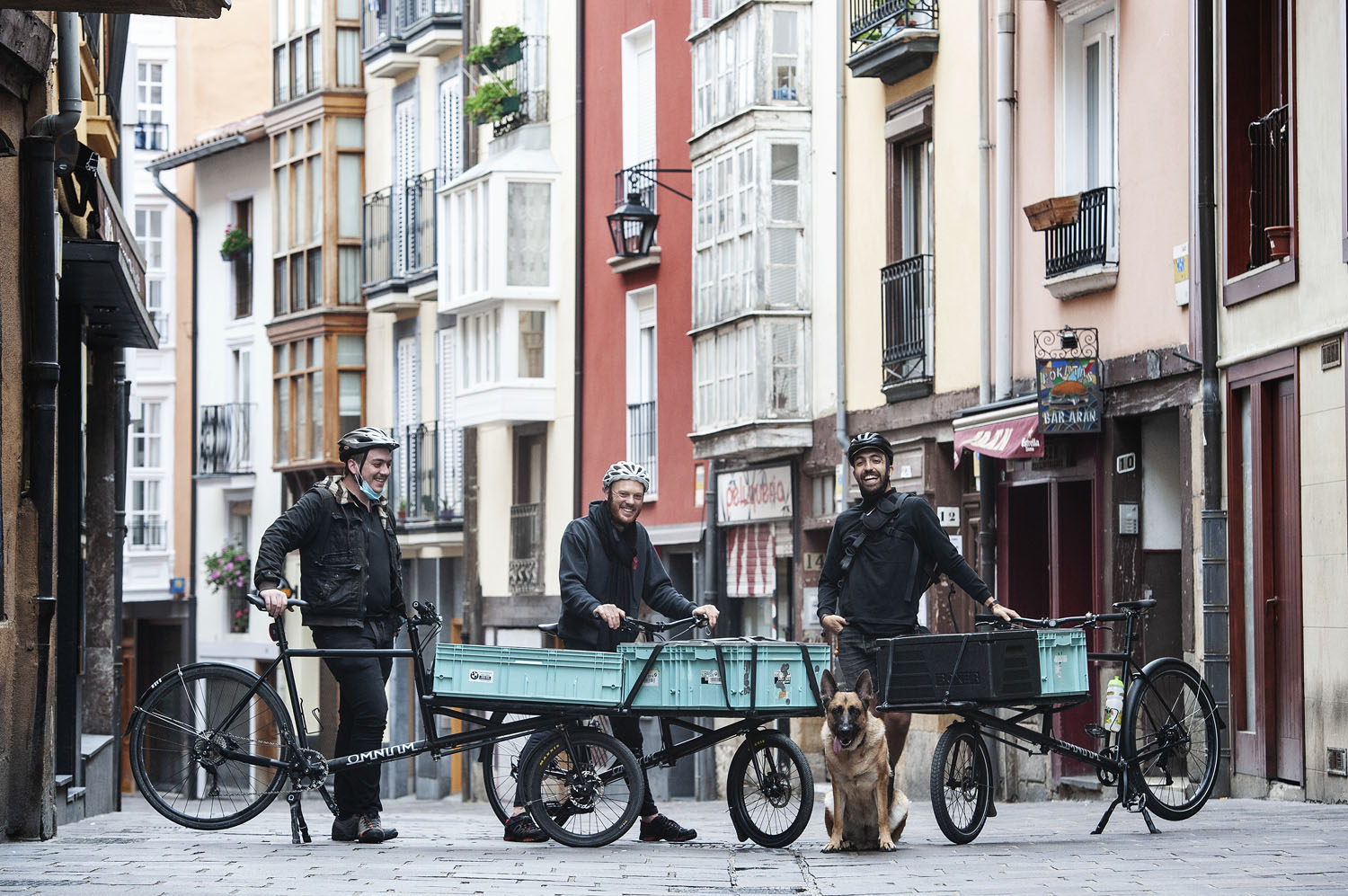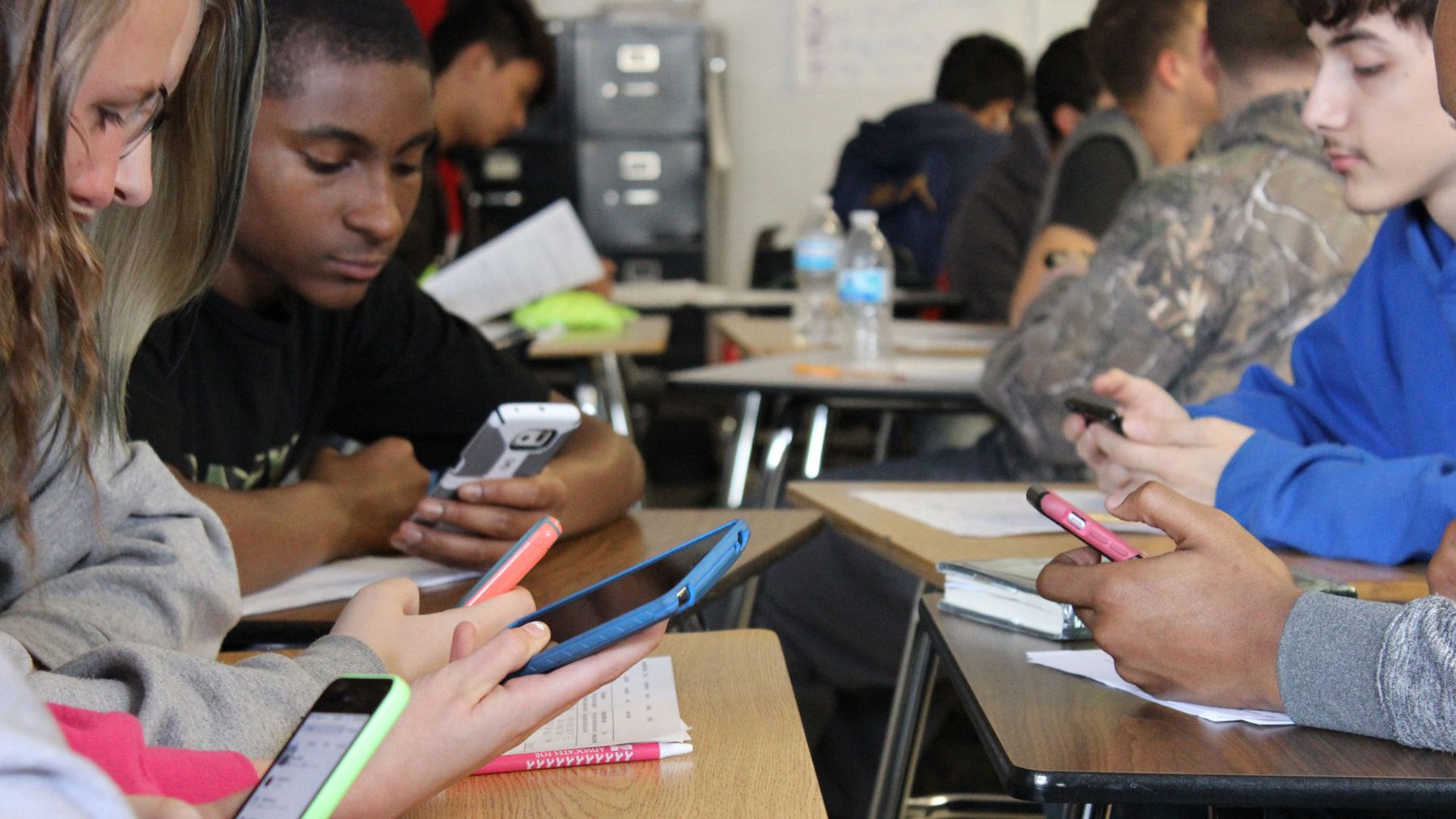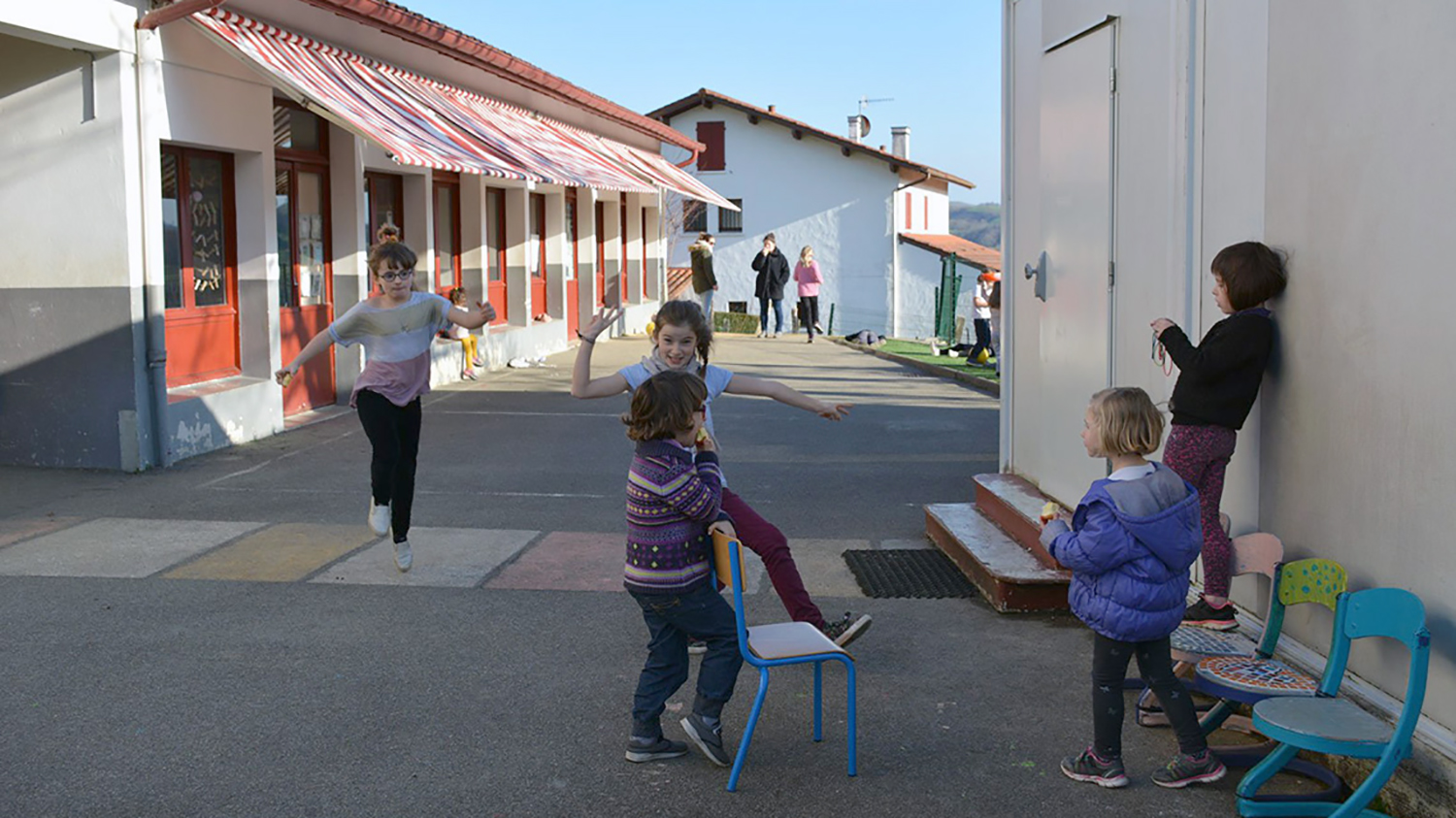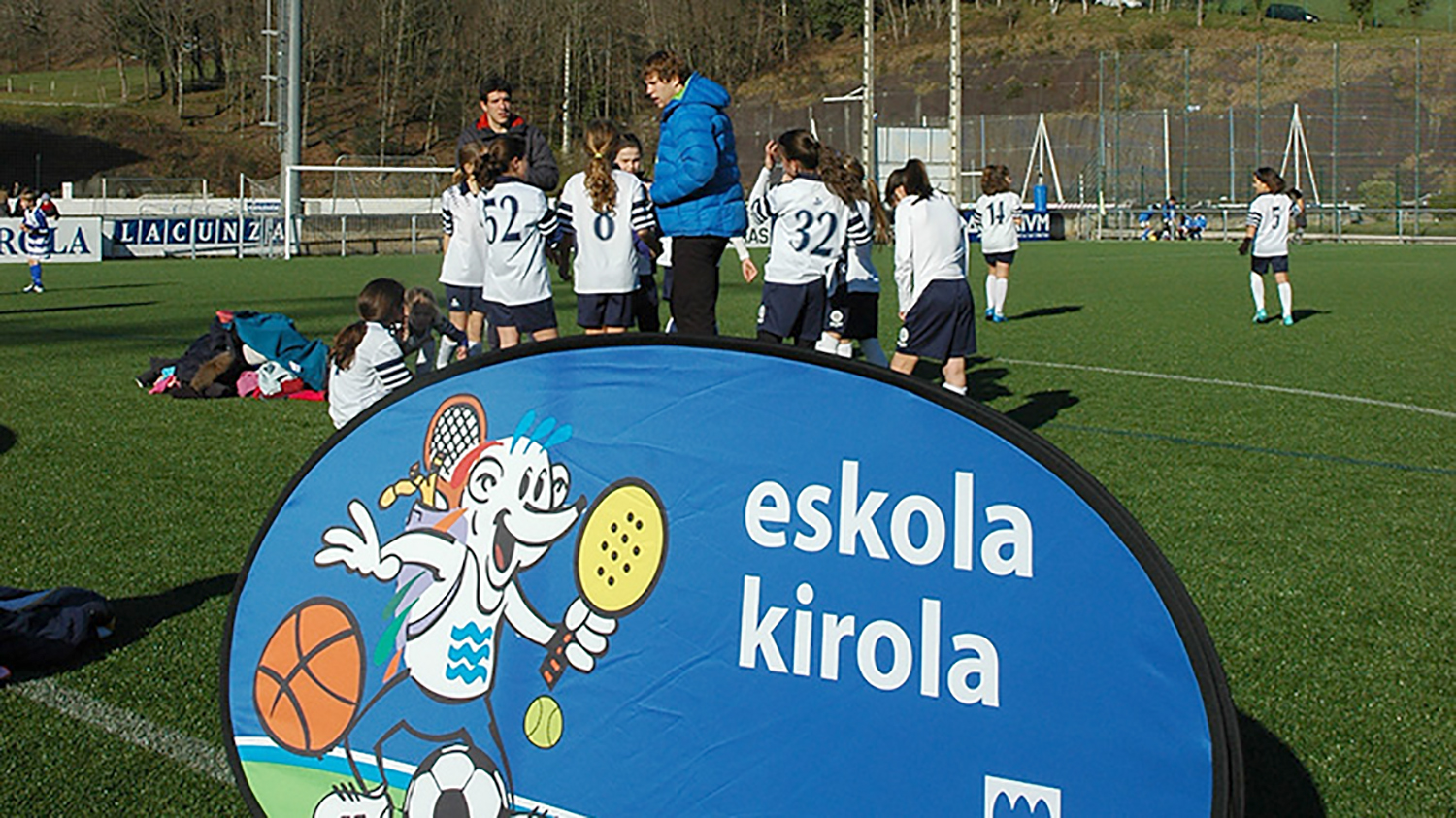Learning from the experiences between friends and games
- Next to the first rays of the summer sun, the young man has left behind the door of his house. With the suitcase in hand, it has as its destination the summer colonies. For two weeks you will meet with your old friends to play and perform the activities you like the most. He does not yet know that in that period he will learn more than he thinks.
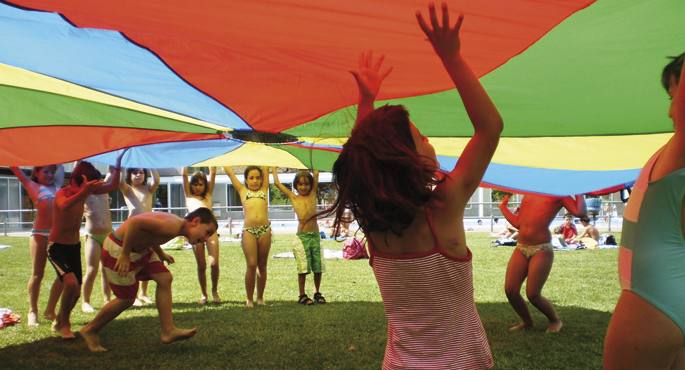
For a young man who is about to meet with his friends and friends, the summer camp is just a leisure space. And it matches the definition of the Harluxet dictionary: “Free time is a free time, free of occupation, free of rest, comfort (...) that can be fulfilled as you want.” A time to have a good time. However, many of those in charge of the organization of the colonies know that it is more: leisure can be educational, and besides being a space to enjoy the summer, at this time many things can also be learned.
This is the view of the Squirrel School of Gipuzkoa and, in the opinion of Izaro Susperregi, there are three fundamental pillars in education in free time: being carried out in free time, having a free time of choice and generating pleasure in the activities that take place. Urtxintxa manages open and closed colonies for children between 6 and 13 years of age, and according to Xabier Ormazabal, Susperregi's colleague, coexistence emerges in both. This coexistence, which is built far from home, is based on the group and on the need for everyone to assume new standards of work and life, respecting the rhythms of each of its members. “It’s like building a small town from the very beginning,” he says.
Learned in everyday life
Closed colonies allow us to live together for 24 hours and put on the table many things about everyday life. The children and young people involved learn to care for and organize things and gain personal autonomy in the colonies. “They have to drive their backpack all week long and decide which clothes they wear there, they don’t have to say that,” Susperregi explained.
But values don't work on an individual basis in colonies. The autonomy of the Ikastolas Association is also worked on, which organizes summer colonies linked to specific activities, such as the Youth Residences for young people from 12 to 18 years who are usually held in Arantza. The audiovisuals are the hook of these rooms and the participants have to create a short film. Nagore Amondarain, head of the summer camps of the Ikastolas Federation, explained that the full work is for young people: “They start to make a technical script and they are the ones who share the responsibilities, one gets as a director, another as a camera, another as an audio manager... They are the protagonists from start to finish, the monitors are almost only going to be observers.” In addition to autonomy, creativity is working this week.
Another axis of the stays is collaboration. They know it in the Basque Colonies. The houses of Abáigar, Bernedo and Goñi, despite each having their own organization, have common criteria. One of them is working on collaboration through cooperative and non-competitive games. What are cooperative games? Games that start and end all members, that is, they do not drive anyone as the activity progresses, without losers. The participants play for the sake of mere enjoyment and work as a team, the skills of each one of them come together to achieve a concrete goal.
They also work in the colonies organized by Urtxintxa Eskola and, for example, play the Matxinsalto. A multitude of children are placed around the parachute, in the center they put the ball or balloon (drummer) and among all they get it so that the drummer does not fall.
All participants are equal in the colonies and work on this equality in daily life. For example, if the places available at the time of registration are exceeded, in Euskal Udalekuak different criteria are used, among which is the maintenance of parity between boys and girls. In addition, during the stay, all sexual options are intended to be expressed normally.
Camps are also used to perform games and excursions related to natural environments, promoting respect and interest for the environment. In this sense, they have committed themselves to reducing consumerism and responsible consumption, and in Euskal Udalekuak, for example, young people do not have access to money. Instead, they drive reuse and recycling.
Basque and Basque culture
The three models cited have as their axis the commitment to the Basque Country and the Basque culture. In all three, the Basque language is the only language used – except in the English colonies organised by the Federation of Ikastolas. In the words of Urtxintxa Susperregi, leisure is another area to normalize the language and may be more important, because it comes out of the formal sphere and because relations of another level are established. “We want to make them understand that Euskera is not for official things, to use it between four walls. No, playing in Basque, having fun and making friends, realizing that we can live in Basque”.
To do so, they promote motivation and use in the Urtxintxa colonies. Educators and educators are trained in these two areas and, once trained, perform the examination of each group. Subsequently, they develop linguistic planning adapted to each group. Monitors have the task of anticipating situations that may arise. “Let’s suppose that the first day of the colonies meets two others who have the habit of making two Basque children in Spanish. If your first contact is in Spanish, these four people will use Spanish throughout the colony. The function of the monitor is to detect the initial time and channel the situation in a subtle way. If you manage to have a first contact in Basque, it will be easier for these people to keep their language in the colonies”.
To maintain the work done during the year in the classroom during the summer, the Federation of Ikastolas organizes summer colonies with varying themes. The aim is to bring young people from different socio-linguistic backgrounds into contact so that everyone can make their contributions according to their place and reality. For this purpose, during the months of June and July, young people are offered the opportunity to ride a bicycle, surf, record audio-visual, play a ball and walk.
It also organizes a specific camp for the Basque: Limit to Eusk(h). This year there will be four shifts between 29 June and 27 July in Lapubs de Labarca. Elementary school children participate in this camp and, as Amondarain explained, “we bring the children from all over Euskal Herria to the plaza of this small town and we put them in contact with the young people of the town”. The hostel is used by the ikastola itself and the fact that it is the only center of the locality – there are no public centers – makes it very easy for them to make known the activities they have to carry out in the village. Among other things, they visit the wineries of the students who in their day went through the ikastola “so that the boys and girls see what those who have gone through the ikastola do and live in a semi-desert area and realize that there are also people who live in Euskera”.
The Mythology Day celebrated in the house of Abaigar of the Basque Colonies is also a good sample of the life of Euskal Herria. Through the Basque dances and the akelarre they try to reflect the life of our ancestors. There is also no shortage of bertso-afaris, nor of the possibility of practising rural sport. The Summer Camps also celebrate the Korrika, which has recently traveled the streets of many towns of Euskal Herria.
However, in these times when languages have so much weight, the colonies are not limited to the Basque country and the Federation of Ikastolas offers several stays in English. Young people can spend four weeks in Ireland in July, or participate in English colonies in June and July in Ondarroa, Bermeo, Zarautz and Sopela. For their part, the participants of the open colonies Enjoy English can learn the language with native English speakers.
Open colonies
Without getting too far from home, there are also open colonies. It is usually an offer for the youngest, which allows you to play with other children and get new things every morning. With shorter hours, they do not allow daily activities such as meals, going to bed or showering, but they also live in them the usual participation in coexistence, conflicts and disagreements, joys and anger. Urtxintxa manages the open summer colonies of several municipalities in Gipuzkoa and compared to the closed ones, Ormazabal has explained that the intensity varies.
The Federation of Ikastolas also has an offer of open colonies, but in this case it is left to each ikastola to organize them. They are aimed at children's education from the end of June to the end of July. It aims to learn to think and communicate, to coexist, to be oneself, to do and to undertake through games, workshops, songs and sports.
Monitor schools
Just as in school centers, teachers and parents are referents of children and young people, in summer colonies monitors and monitors take this role. In Susperregi’s opinion, “the primary tool of the educator is play or play action, but in the end the main tool is oneself, we transmit our values by setting an example.” Therefore, they prepare monitors at the Urtxintxa School and are offered the possibility to practice in summer camps.
The Federation of Ikastolas also has a school of monitors. Amondarain explained that in recent times there are many young people who are taking the title in Spain, because they are facilitating access to that title. In view of this situation, in addition to the usual, an intensive course has been started and in summer the title can be obtained, in two months. “It is important, otherwise, that a young man from an erdaldun area will lose, at the age of 18, surely, any contact with the Basque Country.” The monitors of their colonies – except the very veterans – have been educated in their school, since at the end of the baccalaureate they are offered the possibility of obtaining the degree. Once the certificate is obtained, the colonies begin.
The monitors of Euskal Udalekuak feel the same closeness to the colonies of Goñi, Abaigar and Bernedo. Many of them have been there as children, and today they work as volunteers to give future generations what they received in their day.
Batzuek ohiko udalekuen hautua egiten dute, baina asko dira uda gai jakin batean murgiltzeko baliatzen dutenak, eta udaleku tematikoetan hartzen dute parte. Elhuyar Fundazioak Zientzia udalekuak antolatzen ditu urtero, gazteen artean zientziarekiko jakin-mina pizteko helburuarekin. 12 eta 14 urte bitarteko gazteek har dezakete parte uztaileko lehen hamabostaldian Oiartzungo Arritxulo aterpetxean egingo dituzten bi txandetako batean. Euskaraz ongi pasa eta zientziarekin gozatzeaz gain, berdintasun balioak landuko dituzte eta emakumeek zientziari egindako ekarpenak izango dituzte hizpide. Bertso Udalekuak berriz, uztailean eta abuztuan izango dira Zuhatzan, Bidarrain, Arrazolan, Orion, Barrian eta Irañetan. Bertsotan aritzeko aukera izango dute 9 eta 18 urte arteko gazteek. Euren artean ez ezik, plazako bertsolariekin aritzeko parada izango dute. Natura nahiago dutenek Gautegiz-Arteagan dagoen Baratze Baserri Eskolara jo dezakete. Baserriko bizimodua erakusteko asmoz eman zioten hasiera egitasmoari eta ikasturteko programez gain, udalekuetako bost txanda antolatu dituzte, horietako bi euskaraz. Ekaina amaieran hasiko da lehen txanda eta iraila hasieran egingo da azkena –abuztuan ez da udalekurik egingo–. Jarduera ugari egiteko aukera izango dute parte-hartzaileek: behiak jetzi, perretxikoak desberdindu, erleen mundua ezagutu, baratzean ongarria bota, artilearekin ibili, kandelak egin, arrantza portuak ezagutu…
Andoni Egaña bertsolariak esana ei da udaleku izena asmatu aurretik egiten zituela udalekuak Imanol Urbietak. 1970. urte inguruan hasi ziren Zarauzko ikastolan udako egonaldiak antolatzen. Guraso talde batek, tartean Urbieta, seme-alabentzat mendi irteerak prestatu eta naturaz gozatzeko taldea sortu zuen. Arantzazun kanpin dendekin egindako irteera baten ostean, egonaldi luzeagoak egin ahal izateko Goiatzen (egun Bidegoian auzoa) zegoen Mikelandegi Zaharra baserria erosi eta beharrezko konponketak egin zituzten. “Artean Franco bizi zen eta, agian, politikoki pentsamendu desberdinekoak izango ginen guraso talde hartakoak, baina bagenituen gauza komun batzuk: gure seme-alaben heziketa, natura maitatzea eta, nola ez, euskara”, azaldu du Urbietak.
Familia euskaldun eta euskaltzaleetako 9-12 urte bitarteko neska-mutiko zarauztarrak joaten ziren Goiatzera, 30 haurreko bi txandatan. Jolasean eta kantuan aritzea, kirola egitea, herritik kanpo eta gurasoen babesik gabe elkarbizitza indartzea, naturarekiko harreman estuagoa sortzea, baserri giroa ezagutzea eta ongi pasatzea zuten helburu. Egañak Imanol Urbieta, luzea da bidea liburuan dioenez, “Zarauzko kaleko ume batzuentzat ez zen aldaketa hoberik. Nivea usaina gainetik kendu, eta garo eta simaurrenak apreziatzen hasi ginen”.
Gerora, egun bateko irteerak heldu ziren: Errioxara, Nafarroara eta Bizkaira. Ikasteko modurik egokiena bizitzea dela sinetsita, urtero gauza berriak egin eta urrunago bidaiatzen hasi ziren: Kantabriara, Galiziara, Madrilera... Eta 1975eko udan Europara. Besteak beste, Paris, Suitza, Monako, Italia eta Bartzelona ezagutu zituzten, 14 urteko gazteekin. Bidaiak autobusez egiten zituzten eta kanpinetan edo fraide eta mojen komentuetan egiten zuten lo. Jakiak Zarauzko hainbat dendari eta ostalarik ematen zizkieten, baita gerora lehendakari izango zen Carlos Garaikoetxearen familiak ere –semeak egonaldietan izanak ziren eta harreman ona zuten–. Gurasoek zerbait ordaintzen bazuten ere, bidaietarako dirua urtean zehar egindako kantu grabazioetatik ateratzen zuten nagusiki. Gainera, begiraleak boluntarioak ziren.
Udalekuok oroitzeko garaian, haur haien gurasoek Urbietarengan zuten konfiantza dute gogoan Urbietak eta Kontxi Aizarnak: “Inoiz oztoporik ez zuten jarri eta lasai gelditzen ziren beren seme-alabak gurekin Goiatzera bidalita. Inoiz paper bat sinatu gabe, hitzezkoa izaten zen baimena”.
The Department of Education doesn't understand why public employees have gone on strike. He's got to ask the LAB Syndicate. This union signed an agreement with the department in April 2023. Two years later they have also called for a strike because, unlike the previous ones, the... [+]
Erretiratu berri den lankide-ohi baten omenez, Historiako irakaslea. Bejondeizula!
Hezkuntza-legeek azpimarratzen dute zein garrantzitsua den ikasleengan pentsamendu kritikoa sustatzea. Baina irakasle-klaustroak, garai batean ideien eztabaidarako eta proposamenak... [+]
I received your e-mail in personal mail on the strike portals. At first, like many others, I thought it was to let you know what options we have in the face of the strike. But no, the e-mail received was a political and communicative movement against the strike.
I will confess... [+]









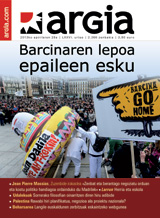

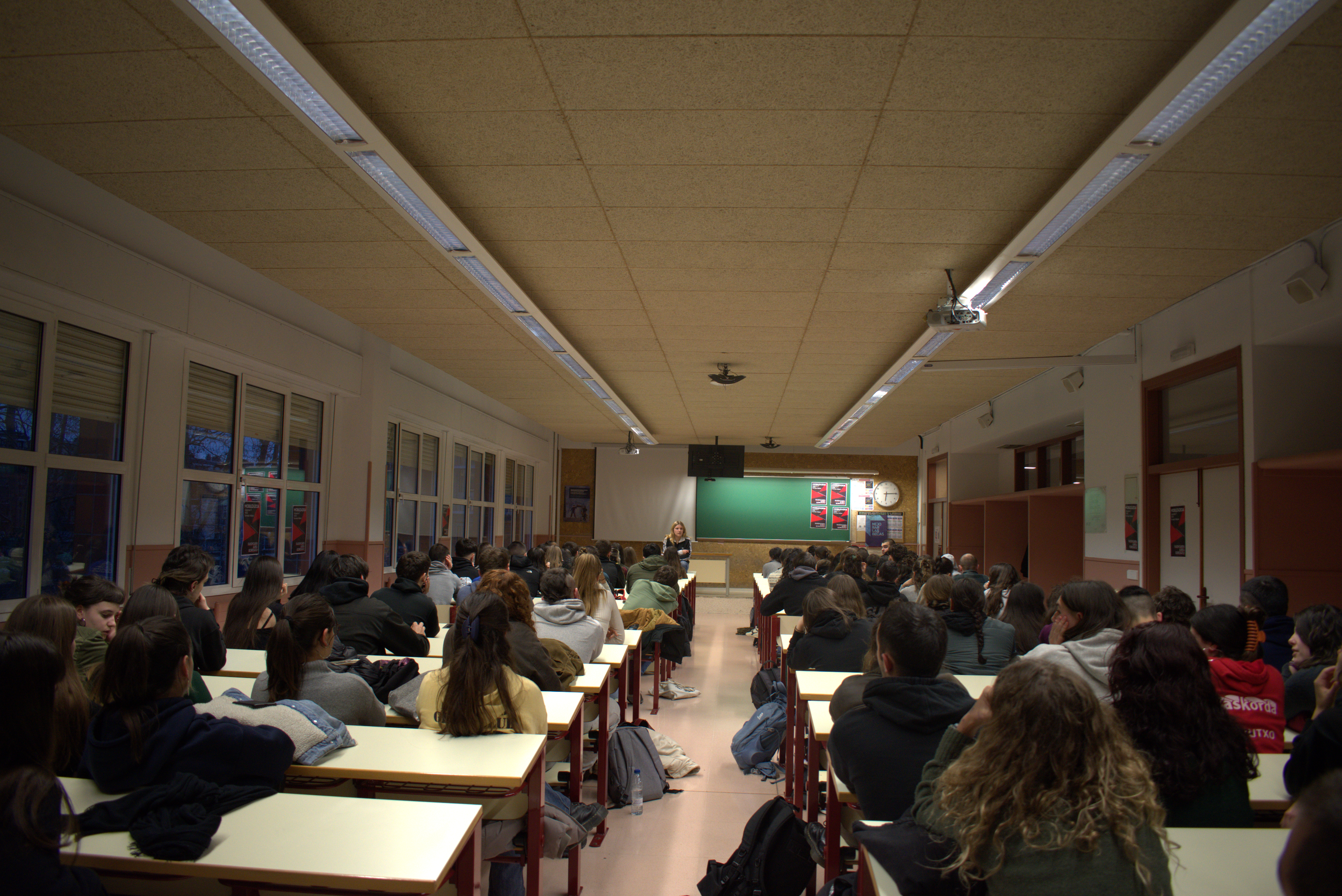

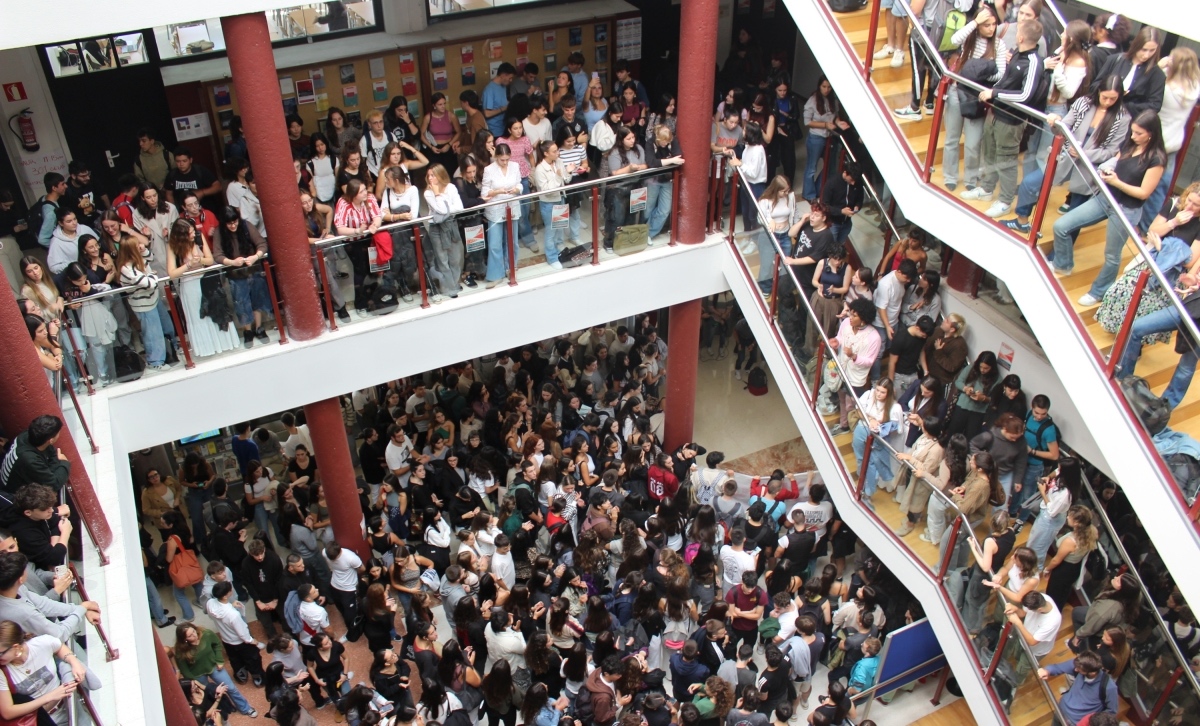

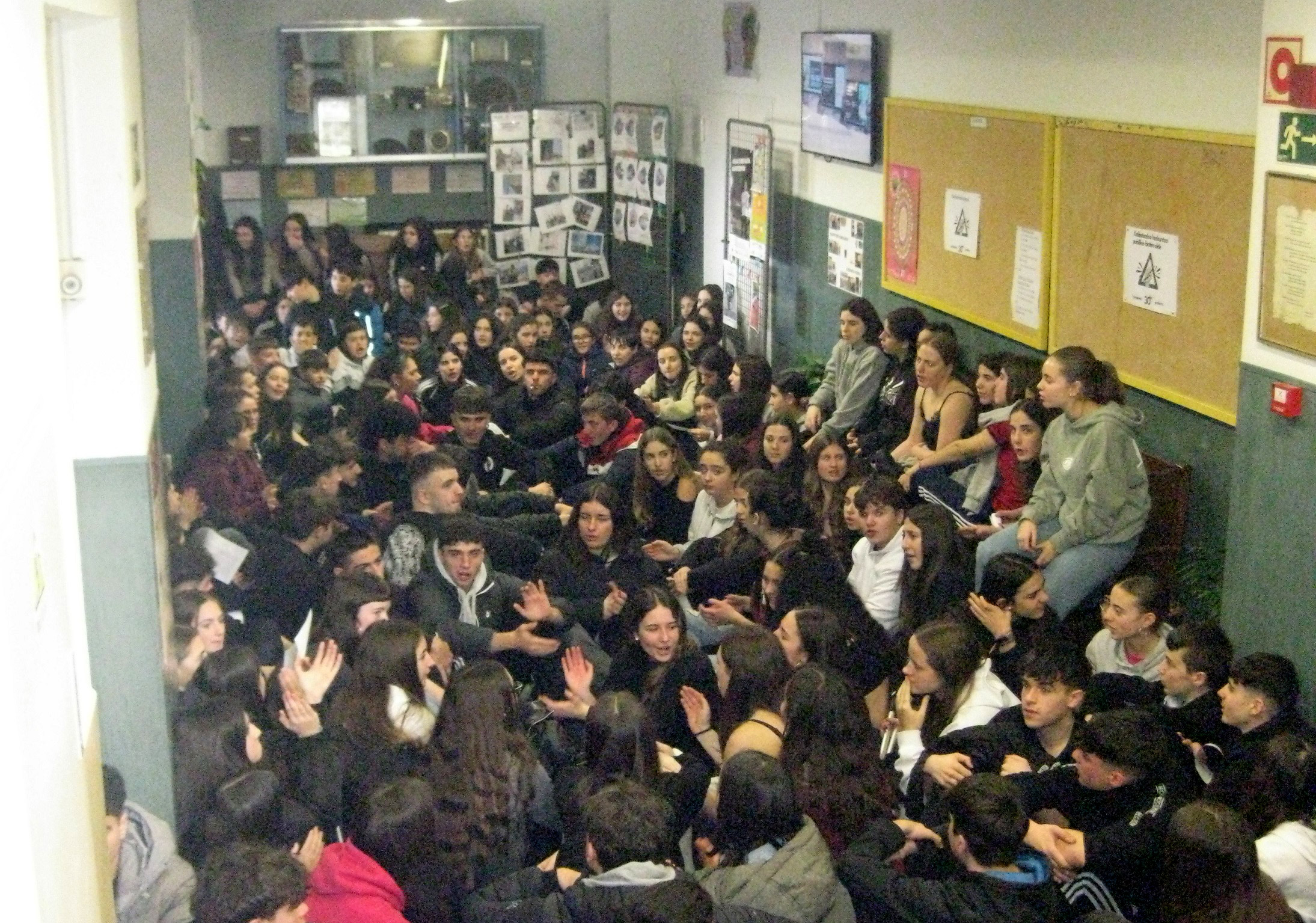



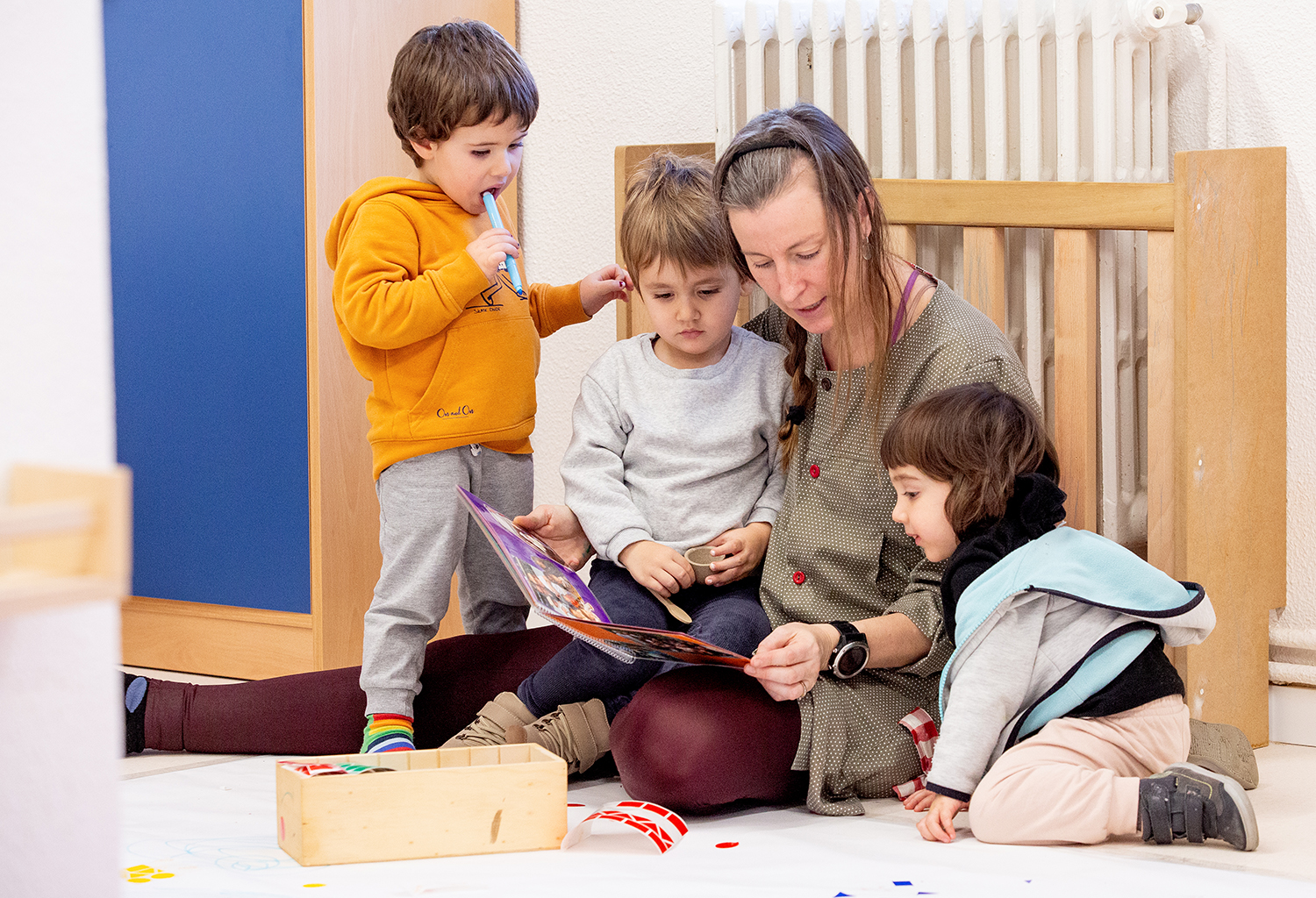
.jpg)
